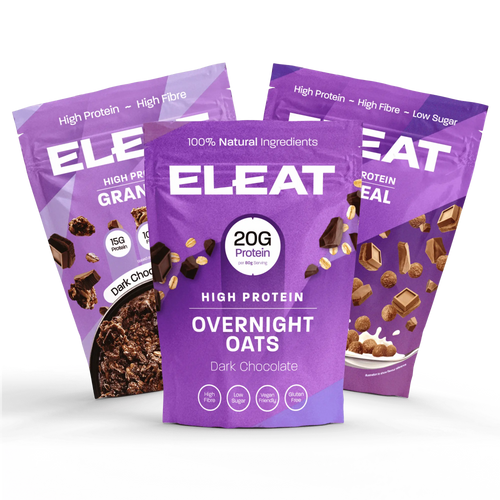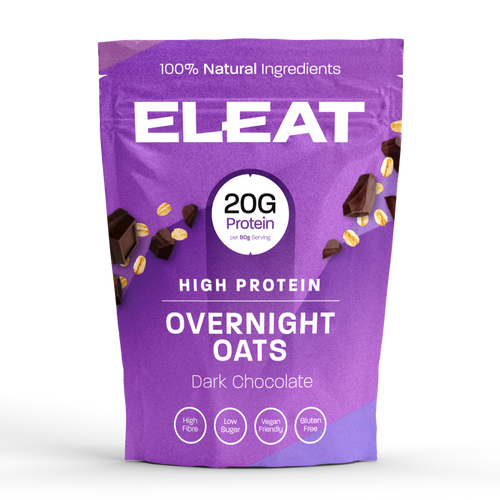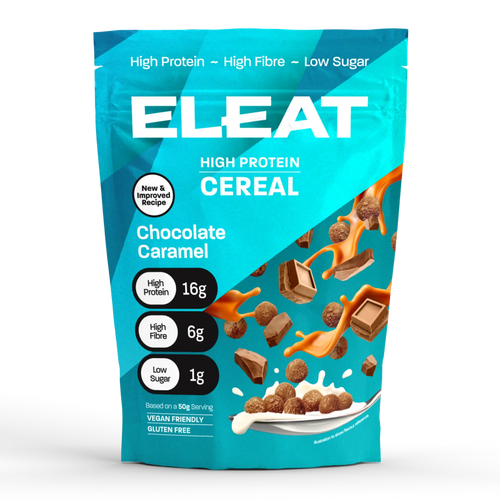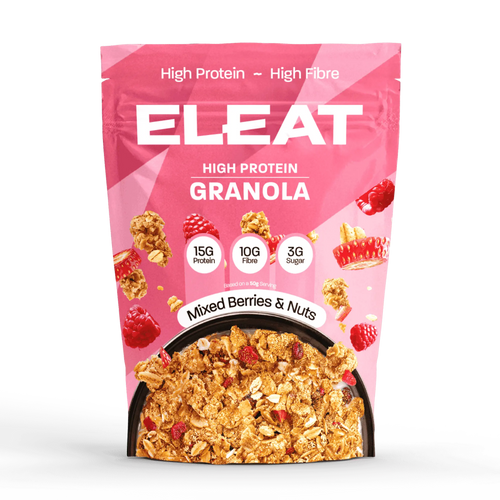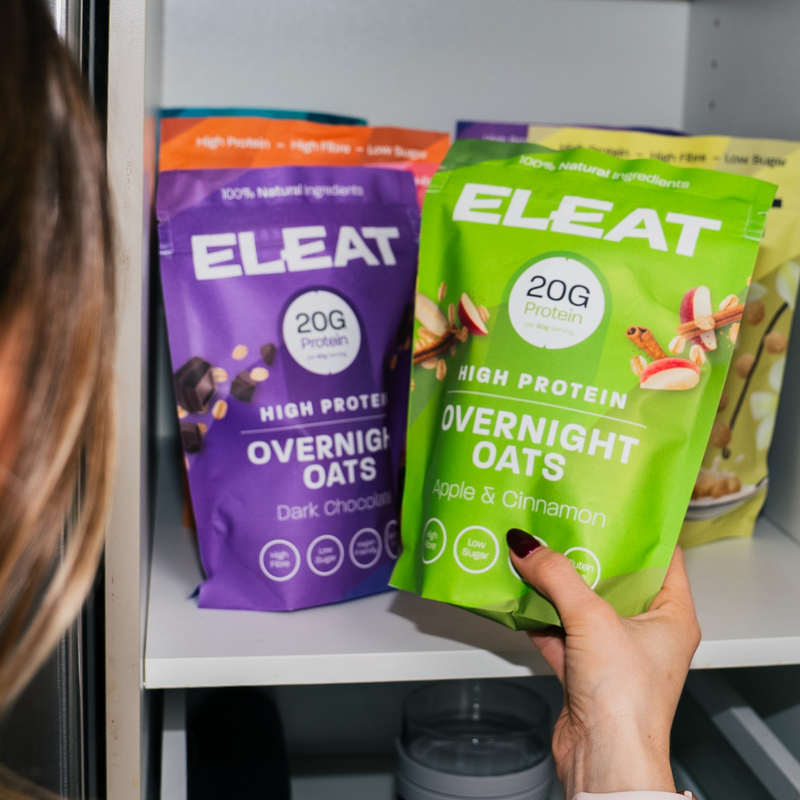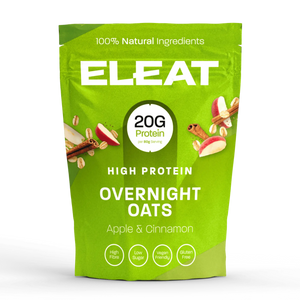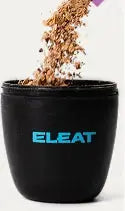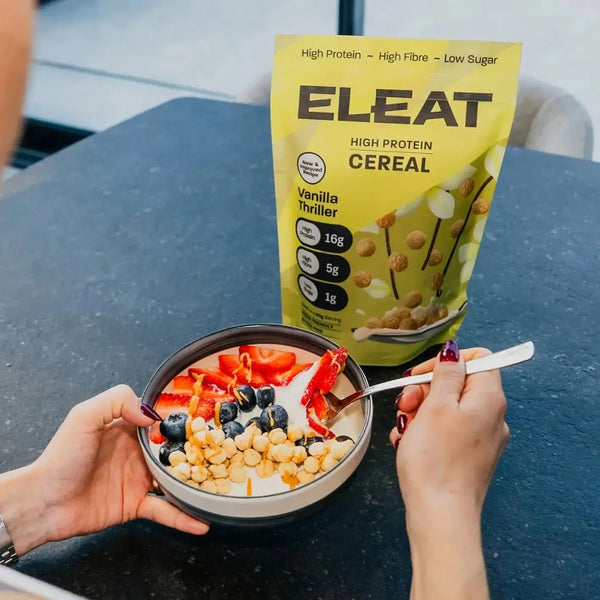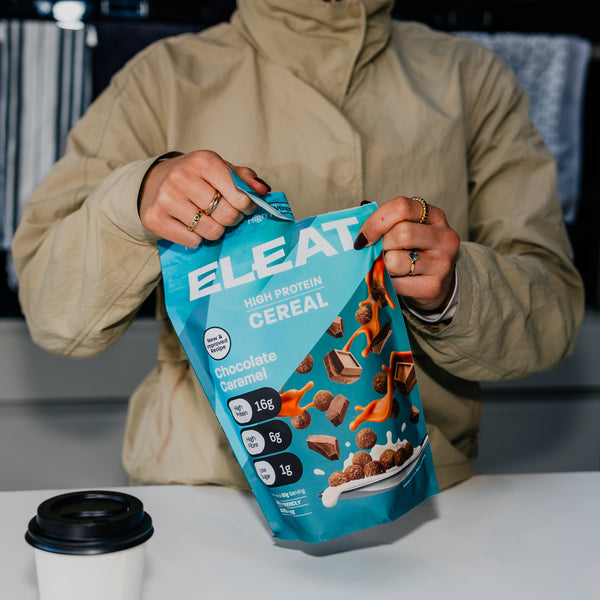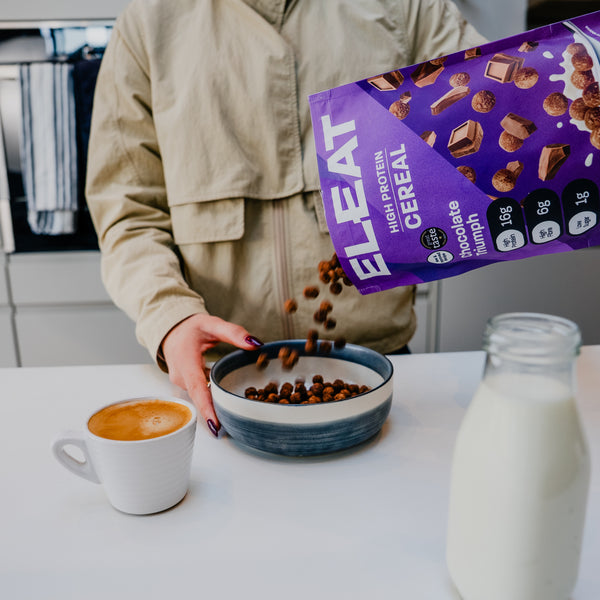In this article:
Want to run stronger and recover faster? The right nutrition can make all the difference. Whether you’re training for a marathon, hitting the trails, or enjoying a casual jog, proper nutrition plays a vital role in enhancing your running performance and overall well-being. What you eat before, during, and after your runs directly impacts your energy levels, endurance, and recovery speed.
A well-balanced diet tailored to your running needs can help prevent fatigue, support muscle repair, and boost stamina. On the other hand, poor nutrition choices can lead to sluggishness, increased injury risk, and delayed recovery. By fueling your body with the right nutrients, you set yourself up for success - both on the track and off.
In this guide, we'll explore the essential components of a runner’s diet, practical meal ideas, and strategies to optimise your nutrition for peak performance. Whether you're a beginner or a seasoned runner, these tips will help you make every step count.
Pre-Run Nutrition
What you eat before a run can significantly affect your performance and comfort. The right pre-run nutrition provides the energy needed for endurance, helps prevent fatigue, and reduces the risk of digestive discomfort. The key is to focus on easily digestible carbohydrates and moderate amounts of protein, which provide quick energy and support muscle function without weighing you down.
Timing Matters
The ideal time to eat before a run is typically 1 to 3 hours beforehand. Eating too close to your run might lead to cramps or discomfort while eating too early could leave you feeling low on energy. If you have a shorter window, opt for a lighter snack.
Sample Pre-Run Snacks
If you're looking for simple and effective pre-run fuel, try these quick and balanced snacks:
Banana with Peanut Butter: A great blend of quick carbs and a bit of protein and fat for sustained energy.
Oats with Berries: ELEAT high-protein overnight oats with fresh berries offer a mix of complex carbs and a protein boost, keeping you energised.
Toast with Honey: Whole grain toast with a drizzle of honey provides easy-to-digest carbs and a hint of natural sweetness for an energy kick.
Choosing the right pre-run fuel and timing it properly can help you start strong and maintain your pace throughout your run.
During The Run: Fuelling Strategies
For shorter runs under 60 minutes, water is usually sufficient to keep you hydrated. However, if you're hitting the pavement for longer sessions or tackling intense workouts, your body may need additional fuel to maintain energy and performance.
When You Need Mid-Run Fuel
If your run lasts over an hour, consider incorporating mid-run fuel to prevent fatigue and maintain endurance. Longer runs deplete your glycogen stores, and replenishing them with quick carbs can help you go the distance.
Best Fuel Sources
Mid-run fueling should focus on simple, easily digestible carbohydrates. Some effective options include:
Energy Gels and Chews: Convenient and formulated for endurance sports.
Sports Drinks: Provide hydration along with carbs and electrolytes.
Dried Fruit: Natural sugars and carbs in a portable form, like raisins or dates.
Hydration Tips
Staying hydrated is just as crucial as fueling. Water is often enough for shorter runs, but for longer distances, opt for electrolyte drinks to replace lost sodium and minerals. This helps prevent dehydration and reduces the risk of cramps.
Post-Run Recovery
Recovery nutrition plays a key role in helping your body bounce back after a run. Focusing on the 3 R’s of Recovery - Rehydrate, Refuel, and Rebuild - ensures that your muscles recover properly and that you're ready for your next workout.
The 3 R's of Recovery
Rehydrate: Drink water or an electrolyte beverage to replenish lost fluids.
Refuel: Replenish glycogen stores with carbohydrates.
Rebuild: Support muscle repair with high-quality protein.
Ideal Post-Run Foods
Combining protein with carbohydrates aids in muscle recovery and replenishes energy. Some great post-run meal ideas include:
Protein Shake with Fruit: Blend a high-protein powder with fruits like bananas or berries for a quick, nutrient-dense option.
Chicken with Rice: A balanced meal that offers lean protein and complex carbs.
ELEAT High Protein Cereal: A convenient option that combines protein and carbs, perfect for a quick post-run snack or meal. Pair it with milk or a dairy-free alternative to boost recovery.
Importance of Timing
To optimise recovery, try to eat within 30 to 60 minutes after your run. During this window, your body is most efficient at absorbing nutrients, allowing you to recover faster and reduce muscle soreness.
By prioritising smart fueling during and after your runs, you'll not only enhance performance but also support overall health and fitness.
Hydration Tips For Runners
Proper hydration is essential for maintaining performance, preventing cramps, and supporting recovery. Water plays a crucial role in regulating body temperature, lubricating joints, and transporting nutrients—everything a runner needs to stay on track.
How Much to Drink
Daily hydration needs vary, but a good general guideline is to drink 8-10 cups (2-2.5 litres) of water daily. During runs, aim for 3-7 ounces (90-200 ml) of fluid every 15-20 minutes, depending on intensity and weather conditions.
Electrolytes Matter
For longer runs or in hot conditions, plain water may not be enough. Electrolytes - such as sodium, potassium, and magnesium - help maintain fluid balance and prevent muscle cramps. Use:
Sports Drinks: Ideal for runs longer than 60 minutes, offering carbs and electrolytes.
Electrolyte Tablets or Powders: Great for adding to water without the extra sugars.
Avoiding Dehydration
Stay ahead of dehydration by monitoring these signs:
Thirst: Feeling thirsty means you're already slightly dehydrated.
Dark Urine: Aim for a light lemonade colour to ensure adequate hydration.
Dizziness or Fatigue: Can indicate a need for fluids and electrolytes.
By keeping hydration a priority, you can improve endurance and avoid common pitfalls like fatigue and cramping.
Common Nutrition Mistakes Runners Make
Even seasoned runners can fall into nutrition traps that hinder performance and recovery. Here are some of the most common mistakes to avoid:
Skipping Meals
When you skip meals, you rob your body of essential fuel, leading to low energy levels and decreased performance. Regular, balanced meals help maintain blood sugar levels and support muscle function.
Underfueling Long Runs
Not eating enough before or during a long run increases the risk of "hitting the wall," a point where glycogen stores are depleted, and energy plummets. Plan your nutrition strategy to include easily digestible carbs and, for extended runs, mid-run fueling options like gels or chews.
Not Prioritising Recovery Nutrition
Recovery nutrition is critical for muscle repair and overall performance. Failing to eat a combination of protein and carbohydrates within 30-60 minutes post-run can delay recovery, increase soreness, and affect your readiness for the next workout. Including quick options like a protein shake, a high-protein cereal like ELEAT, or a balanced meal helps kickstart the recovery process.
Avoiding these common mistakes and focusing on a balanced, strategic approach to nutrition can make a significant difference in how you feel and perform as a runner.
Conclusion
The right nutrition can elevate your running experience, helping you build endurance, recover faster, and maintain peak performance. By focusing on pre-run fuel, staying hydrated during your workouts, and prioritising recovery nutrition, you set a strong foundation for success. Avoiding common nutrition mistakes and choosing balanced, nutrient-rich foods - like ELEAT high-protein cereal for a quick recovery boost - will support your fitness goals and keep you energised.
Whether you're training for a race or enjoying a casual jog, fueling your body properly is a game-changer. Make mindful nutrition choices a part of your running routine, and watch your performance thrive, mile after mile.
